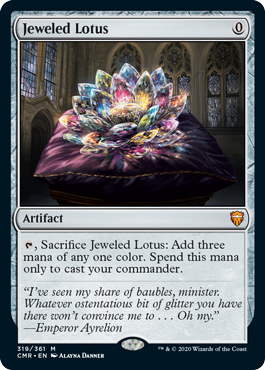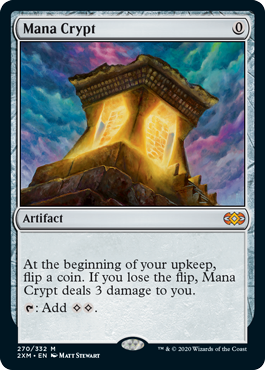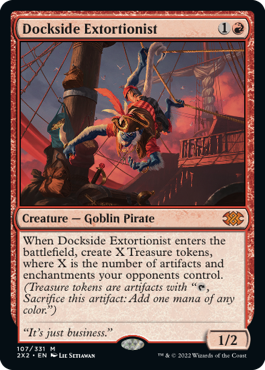Wizards of the Coast now has complete control over their card game’s most popular format. Some might be surprised to learn that Magic: The Gathering‘s most popular and beloved format, Commander, was not already overseen by the card game’s owners. The answer, in short, is that the format wasn’t for Wizards. Commander is for everyone.
Commander was born from Elder Dragon Highlander (EDH) format on an air force base in Alaska. A Magic Judge named Sheldon Menery started to shape this format in the early 2000s around the idea of a social, player-driven philosophy. Sheldon founded the Commander Rules Committee (RC) to help guide the format down these hopeful paths. The intention of the RC has always been to encourage the social, casual nature of Commander, rather than enforce strict rulesets. Menery outlined this simply, in an interview from September 2022, saying “Commander is a social format first, and a mechanical one second.”
To most people, Commander is the format that you play with a group of friends over drinks and snacks while talking about whatever and occasionally realizing that you’re losing the game. That simplicity is what made Commander the most popular way to play, and often the main way people enter into Magic: The Gathering as a hobby. Balancing this social philosophy with ban lists is a difficult thing, but the upside is that the RC was run outside of Wizards of the Coast. The RC were members of the Magic community, accessible and approachable people who could directly address the critiques of a growing player base. When the community grew and the viewpoints of the RC weren’t enough, the Commander Advisory Group (CAG) was established, inviting high-profile members of the community to be rallying points for players and new voices to influence RC decisions.
In the same interview from 2022, Menery explained, “We don’t have hard data, metrics, like a corporation might for its decision points. We don’t have profit sheets… that’s liberating.” That was the difference. The format’s leadership cared about people and encouraging camaraderie; a corporation cares about selling cardboard. When Wizards started designing cards specifically for Commander, a new purpose for the RC and CAG became to assess how these cards impacted players and decide how to handle them.

While the cooperation between Wizards and the RC was mutually beneficial, the design goals for Wizards’ formats and Commander are completely different. The RC is, technically, not an official rules-making body. Their decisions might effect the competitive scene of Commander, but the format is designed for flexibility in how each play group will play the game. These lines can blur and become more difficult as Wizards prints cards with Commander as a focal point for design. Menery explained in an article in 2015, “There is a global, centralized vision for the format. It’s up to you to figure out how your personal vision meshes with that or doesn’t, but our vision includes the idea that yours does not perfectly line up with ours.”
The RC’s approach to Commander has long been fairly hands-off, part of the goal to allow players a sense of freedom and expression through deck building and play. This continued as Commander pushed onward in the aftermath of Sheldon Menery’s passing in September 2023. His claim that the personal vision of some players may not perfectly align with the goals of the RC became prophetic a few days ago.
On September 23, the RC banned four cards: Mana Crypt, Dockside Extortionist, Jeweled Lotus, and Nadu, Winged Wisdom. Nadu had already been removed from other formats, and most did not miss it. The other cards were banned because of their ability to ramp up the speed of games, the ability to accrue “fast mana” and jump into the mid-game by your first or second turn. The cards were format-warping, but people were quick to point out the strange inconsistencies in the banning philosophy while comparing which cards were and were not banned. Then, things escalated.

According to some members of the CAG, the RC made these choices without consulting the CAG at all. Criticism was lobbied at the RC initially, but that took a turn too. The banning of these cards was considered an economic hit for card investors selling on the secondary market. Prices for several of these cards had reached between $80 and $800, Mana Crypt in particular. The drop in prices on a line graph were stark and vertical. The vitriolic threats that were fired around are actually best captured in a post from Wizards of the Coast in the aftermath. They said, “we’ve seen players and fans share a diverse range of passionate opinions—far too many of which were harmful or malicious” and “it is never appropriate to threaten somebody… we will not hesitate to take action against individuals who threaten to harm community members or employees.”
The RC posted a document describing their reasons for the bans in question, why they didn’t alert the community these cards were being monitored, and why the CAG was not informed of these decisions. When threats at Committee members, particularly targeting Olivia Gobert-Hicks, continued, Jim LaPage went to social media to defend Olivia, breaking the RC’s confidentiality voting in a clear attempt to mitigate the anger. LaPage’s X account went private soon after. Some CAG members tweeted resignations amidst all this for reasons that are still unknown at the time of reporting. Since the list went up, according to all sources from the Magic community, Commander format leadership, and Wizards themselves, nothing stemmed the tide.
On September 30, Wizards of the Coast announced that control over the Commander format now belonged to them. Social media posts from RC and CAG members soon followed.
At this time, it is too soon to say for certain what the consequences of this shift from a volunteer force to Wizards will be. Wizards has indicated that “the vision for a social format will not change.” In a livestream on October 1, Wizards tackled the very issue of making decisions with profit sheets. Aaron Forsythe responded, “Yes, Hasbro wants things. Yes, my boss wants things… I have a lot of freedom to execute as I see fit… Our goal is to make this thing last forever… making the game fun as possible for as many people as possible is how we’re gonna make our money.” They also provided some comments on the nature of their proposed “bracket” system and the new Committee that mostly amounts to no real answers for players until something more official is released.
Discussing the banned cards at the center of all this, Wizards designers revealed they believe the cards to be “mistakes” that they “would not want to make by today’s standards.” While the implication is that these cards will remain banned, there was no confirmation that they will stay that way. All we know for now is that Wizards is “evaluating” the ban list and making no changes at this time.

In a 2019 article by Sheldon Menery discussing the history of Commander, he concludes with, “The history of Commander has been a long, strange, and unexpected trip. How we got here is a compelling story, but it’s more important to focus on where we are and where we’re going.” More than ever, the story of Magic‘s most popular format feels adrift in unknown waters. Wizards of the Coast produces game pieces for their official formats and happily uplifts their secondary market with restrictive reprint policies. Commander is now an official format too.
Still, it is better for anger to be targeted at a faceless corporation than individual volunteers. The admin for the official Commander Discord server posted a statement that included this observation, “You will never again get the privilege of one-on-one communication with a decision maker of the format. There’s no doubt that the people who will be taking over managing Commander will be kept mostly anonymous for their own safety, given what just happened to the Rules Committee.”
What will become of the social format is anyone’s guess. In the final sentence of his history article, Sheldon Menery takes an optimistic approach toward the future. He wrote, “From where I sit, the sky is the limit.”
In the immediate aftermath of Wizards taking control of Commander, listed prices of Mana Crypt and Jeweled Lotus started to rise.






Published: Oct 2, 2024 03:15 pm